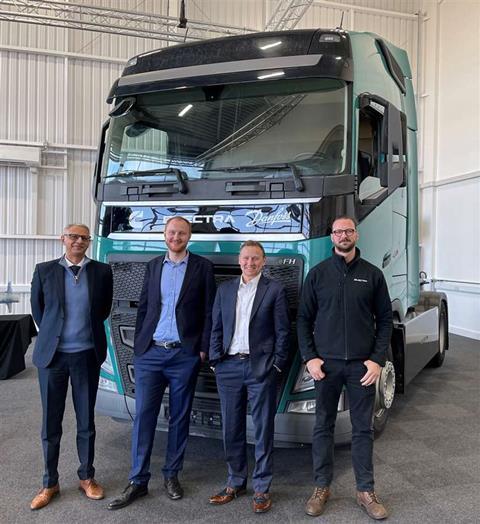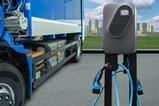Cummins has started testing its new ePowertrain at the Millbrook Proving Ground in the UK. The ePowertrain, known as 17Xe, has been developed by Meritor, now part of Cummins, in partnership with Advanced Propulsion Centre (APC) consortium partners Danfoss’ Editron division and Electra. The ePowertrain has an output capability of 576hp and is suitable for powering heavy-duty trucks and buses in 6x2 or 4x2 configurations. The 17Xe ePowertrain is available in a range of ratios and has three-speed transmission capabilities.

John Bennett, General Manager of ePowertrain at Cummins, said, “The compact, integrated design and power density are ideal for OEMs interested in developing future-proof, sustainable heavy-duty equipment. We look forward to working with our customers to accelerate decarbonisation of the heavy-duty vehicle market.”
Danfoss’ Editron division developed and supplied the electric motor and silicon carbide inverter powering the axle. The electric motor is based on a patented architecture and thermal management methodology, which exceeds the APC’s 2035 Roadmap targets for power density. This design enables the electric powertrain to require only one motor, marking a significant step forward for the industry. Current alternatives usually need two motors to meet this product segment’s power requirements.
Sunil Maher, Senior Project Delivery Lead at APC, said, “I am really proud to see this major milestone by demonstrating a fully integrated e-axle into a heavy-duty vehicle. Seeing this prototype vehicle in operation is a significant step to addressing net-zero transport challenges in the UK. I look forward to the next stage of development which will see technical improvements and further product variation, to deliver solutions for heavy-duty and commercial vehicles.”
The 17Xe ePowertrain has been developed as part of an APC Electric Powertrain Integration for heavy Commercial vehicles (EPIC) project, which aims to support the commercial vehicle sector in meeting future regulations targeting CO2 reduction from 2025. This is a major milestone in the ongoing effort to decarbonize the transportation industry and reduce the carbon footprint of heavy-duty vehicles.


















